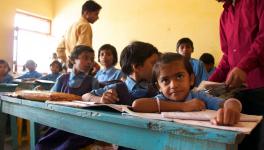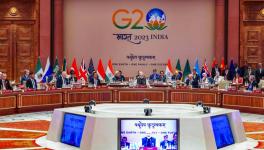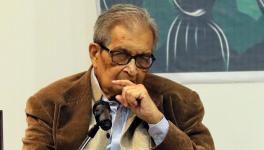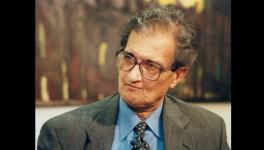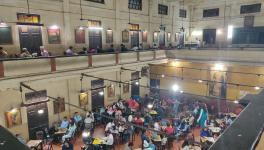HDR 23/24: Need to Bridge Agency Gaps for Inclusive Human Development
In the realm of economics and development studies, the concept of agency emerges as a powerful lens through which to examine human development. At its core lies the recognition of individuals not merely as passive recipients of economic forces, but as active agents capable of shaping their own destinies. This notion of agency underscores the profound influence that individual choices and actions wield in driving economic progress and fostering human well-being.
Amartya Sen's seminal work, The Ends and Means of Sustainability, offers a profound examination of agency within the realm of sustainable development, particularly poignant in an era marked by environmental crises and social disparities. Sen highlights the pivotal role of individual and collective empowerment in navigating the complexities of our time, advocating for a paradigm shift towards inclusive decision-making and grassroots engagement. His emphasis on amplifying voices, especially those of marginalised communities, underscores the imperative of holistic approaches that prioritise human capabilities alongside environmental preservation.
The Human Development Report 2023/24 highlights that the agency aspects of human development, encompassing individuals' capacity to embrace values, establish goals, and commit to them, have often been overlooked in policymaking agendas, especially those aimed at achieving collective goals. Yet, agency is fundamental in bolstering people's capabilities and is closely linked to mental well-being.
Recognising the importance of agency is crucial in steering our world toward sustainability and equity, aligning with the ambitious goals outlined in the 2030 Agenda for Sustainable Development. By prioritising agency, we empower individuals to lead purposeful lives and contribute meaningfully to creating a more just and sustainable future for all.
HDR 2023/24 and Agency Gaps
The emergence of agency gaps manifests at various levels, posing significant challenges to individuals' capacity to act as catalysts for change and support collective action. These gaps represent disparities in the distribution of agency across different segments of society, hindering equitable participation and contribution to collective endeavors.
At the individual level, agency gaps may arise due to unequal access to resources, opportunities, and information. Socio-economic factors such as poverty, discrimination, and lack of education can impede individuals' ability to exercise agency effectively, limiting their potential to engage in meaningful collective action.
Furthermore, agency gaps can also be observed at the community and societal levels. Structural inequalities, power imbalances, and institutional barriers often marginalise certain groups and undermine their agency to influence decision-making processes and advocate for their interests. This disparity in agency distribution perpetuates social injustices and exacerbates disparities in access to resources and opportunities.
Addressing agency gaps is paramount for fostering inclusive collective actions that drive meaningful change. By dismantling structural barriers and promoting equitable participation, societies can harness the diverse perspectives and capabilities of all individuals.
Empowering marginalised communities to assert their agency not only enhances their capacity to engage in collective decision-making but also fosters solidarity and collaboration across societal divides. Through concerted efforts to bridge agency gaps, communities can unlock the full potential of collective actions, paving the way for more inclusive and impactful initiatives that advance shared aspirations for a better future.
Two proxy indicators are used to measure the agency gaps in this HDR: the share of the population that reported feeling in control over their lives and the share of the population that reported feeling that their voice is heard in the political system. HDR reports that five in 10 or about half the world’s people report not being in control of their own lives. Moreover, seven in 10 or 68% of people report that they have little influence in the decisions of their government.
Policy Suggestions to Narrow Agency Gaps
In order to reduce agency gaps, the HDR suggests that institutions must transition toward a more human-centric, collectively owned, and forward-looking approach.
A people-centric approach prioritises the advancement of human well-being and ensuring the security of individuals. It underscores the understanding that human development is intricately linked to the health of the planet, emphasising the importance of sustainable practices that benefit both people and the environment. By recognising this interdependence, policies and actions can be tailored to foster holistic progress and address the needs of both present and future generations.
"Co-owned" embodies democratic governance ideals, advocating for equitable power-sharing to collectively set and address goals. It emphasises individual autonomy and agency within societal structures, fostering a culture of collective decision-making ownership.
Encouraging social norms that prioritise cooperation and mutual respect, it cultivates collaboration and shared responsibility. Embracing "co-owned" principles promotes inclusive governance, empowering all individuals to contribute to the common good and shape collective destinies.
The decline in democratic standards is not primarily due to a lack of support for democracy itself but rather stems from disillusionment with institutions failing to uphold democratic principles. This leads to a “democracy paradox” where the majority of individuals recognise democracy as a crucial aspect of political systems, yet there's a growing acceptance of leaders who flout democratic norms. At present, over half of the population surveyed by HDR expresses approval for such leaders, signaling a concerning trend.
The concept of being future-oriented involves directing attention toward collaborative efforts aimed at shaping and constructing prospective outcomes, thereby enhancing opportunities for deliberative discourse and consensus-building. Despite encountering adversities, adopting a future-oriented stance facilitates the emergence of hopeful prospects and innovative resolutions.
In summary, the agency aspect of human development underscores the pivotal role of individuals in shaping societal progress, as emphasised by Amartya Sen's insights. Despite this recognition, the Human Development Report 2023/24 highlights concerning trends in agency gaps, reflecting disparities that hinder equitable participation in collective actions.
Policy suggestions advocate for a transition toward a people-centric, co-owned, and future-oriented approach to narrow these gaps, promoting inclusive governance and empowering individuals to contribute meaningfully to shaping a more just and sustainable future. Addressing these challenges requires fostering cooperation, amplifying marginalised voices, and embracing a future-oriented perspective to inspire hope and innovative solutions.
The writer is Assistant Professor, Department of Economics, St. Xavier’s College (Autonomous), Ahmedabad. The views are personal.
Get the latest reports & analysis with people's perspective on Protests, movements & deep analytical videos, discussions of the current affairs in your Telegram app. Subscribe to NewsClick's Telegram channel & get Real-Time updates on stories, as they get published on our website.









